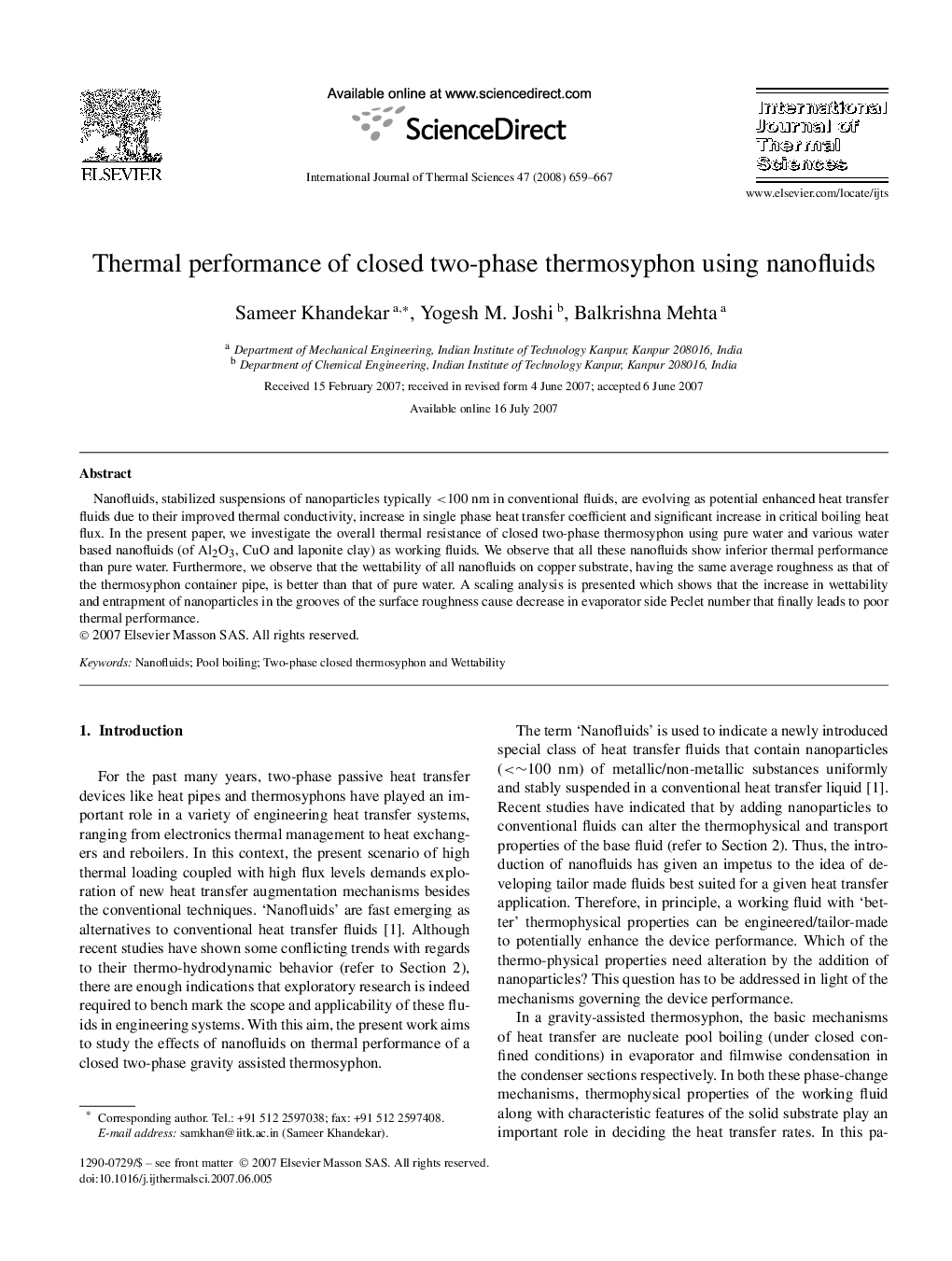| Article ID | Journal | Published Year | Pages | File Type |
|---|---|---|---|---|
| 669999 | International Journal of Thermal Sciences | 2008 | 9 Pages |
Nanofluids, stabilized suspensions of nanoparticles typically <100 nm in conventional fluids, are evolving as potential enhanced heat transfer fluids due to their improved thermal conductivity, increase in single phase heat transfer coefficient and significant increase in critical boiling heat flux. In the present paper, we investigate the overall thermal resistance of closed two-phase thermosyphon using pure water and various water based nanofluids (of Al2O3, CuO and laponite clay) as working fluids. We observe that all these nanofluids show inferior thermal performance than pure water. Furthermore, we observe that the wettability of all nanofluids on copper substrate, having the same average roughness as that of the thermosyphon container pipe, is better than that of pure water. A scaling analysis is presented which shows that the increase in wettability and entrapment of nanoparticles in the grooves of the surface roughness cause decrease in evaporator side Peclet number that finally leads to poor thermal performance.
